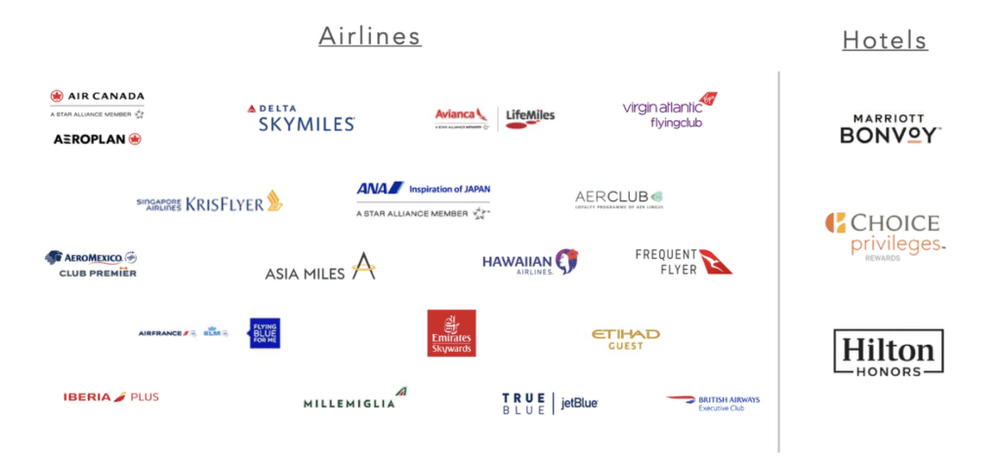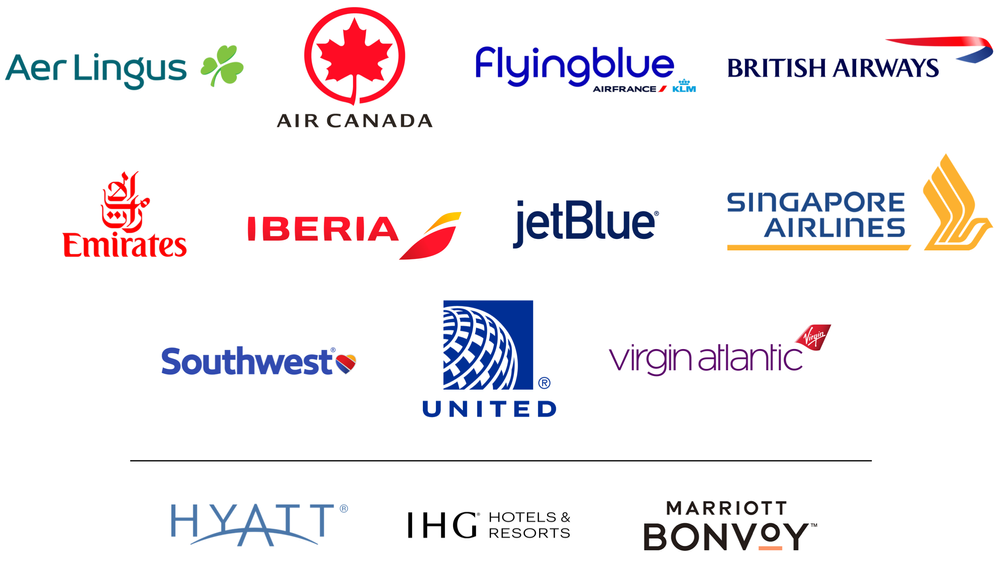Maximize Rewards: Using Your Credit Card for Payroll to Earn Points and Miles
I’m thrilled to share a detailed guide on a points and miles strategy that has not only transformed how I approach business expenses but also caught the attention of many seasoned and new travelers in the points game. Yes, it’s possible to run your payroll on credit cards, and earn valuable points and miles that you can use for travel.
Disclaimer: This post may contain affiliate links. Please see our advertiser disclosure for details
Alternatively you can listen to the full episode and overview here:
3/7/25 Update: It seems they’ve been in the process of updating their processing system and running payroll by card is delayed until 3/17 according to their site.
3/18/25 Update: After speaking with them as to why the system is still not ready here is the response received: The update was scheduled initially from our end, the credit card processor, and the banking partner. Unfortunately, the update from our credit card processor has not been completed yet. We are sorry, but as per the latest update from our credit card processor, this update has been pushed to next week. We are expecting this to be available before the end of the next week [3/28].
3/26/25 Update: It’s back! However their processing of American Express is not authorized yet. There is not a current ETA they’ve been able to provide me. Here’s the official update from their website: Our Amex card service is temporarily unavailable as we work on enhancements for a smoother user experience and will be back soon.
3/31/25 Update: It’s been down for maintenance again, but Zil Chat says that it should be back sometime soon. That being said, after processing a payroll, it did not code as a 3x category, so it makes sense to pivot to a card that earns 1.5x or 2x on everything. After the system is fully up and running, with Amex integration, we will full update this article AND do a new podcast episode.
Why Consider Payroll for Points and Miles?
For many business owners, payroll is one of the largest recurring expenses. Imagine converting this unavoidable cost into credit card rewards that could fund your next vacation or upgrade your travel experiences. But how do you run payroll on credit cards?
The concept is simple but powerful: continue to process your payroll the same way you’ve been doing for years, however you get essentially an “advance” of those funds from your credit card, without paying typical cash advance fees or higher interest rates. This involves processing the payroll charge through Zil Bank/Zil Money. This generates rewards points that can then be redeemed for significant travel value. Whether you’re a seasoned points and miles user or just getting started on the concept, this strategy is a game-changer.

What Is Zil Bank/Zil Money?
Zil Bank and it’s Zil Money Platform is a business banking platform that offers a range of tools for entrepreneurs, including the ability to process payroll using a credit card. Unlike traditional payroll processors, Zil Bank allows you to earn points on your credit card transactions while seamlessly integrating with your existing payroll provider. The best part? You don’t need to overhaul your current setup.
Key Features:
- Seamless Integration: Link your business bank account and credit card to Zil Bank without changing payroll providers like ADP, Gusto, or Paychex.
- Ease of Use: Upload your payroll summary, select the credit card to charge, and process payroll without switching platforms.
- Transparent Fees: Zil Bank charges a 3% transaction fee plus a $10 wire/ACH charge per transaction.

How It Works
Here’s a step-by-step breakdown of how to use Zil Bank for payroll:
1) Set Up Your Account:
Create an account with Zil Bank and link your business bank account and credit cards. While there is a free trial of their business suite of services, In order to access the payroll by credit card you’ll need to have their basic business membership which is $50/month.
2) Setup your financials:
You must connect your business account (ideally the one you use for payroll already) to their portal. This may take a couple of days if you have to use the “micro deposit” method. You’ll also want to link your business credit card. Linking requires a secure upload of the front and back of your credit card. This is a straightforward process. Sometimes this isn’t needed until you actually run the payroll.
While they say you can cover the numbers of your card with your finger, I was told after trying that that they need to see the entire card number for verification.
I’ve only ever used a business card tied to the same name as the company I setup on Zil Money. This also matches what shows up on our payroll report. So, I can’t comment if you could also use personal cards in the same way. They review every transaction.
3) Process Payroll:
Run payroll through your usual provider and generate a payroll summary.
Log into Zil Bank, select “Payroll by Credit Card,”
Choose the card you want to use and the bank account to deposit the funds into, then select your actual check date, the gross amount and upload the payroll summary.
You’ll then have to choose how much of the actual payroll you want to run on the card. You can do up to the full gross amount, and whatever amount you select will show the additional fee that you’ll pay.
4) Authorize Payment:
Zil Bank charges the amount to your credit card, adds a 3% fee, and deposits the gross payroll amount you selected into your business bank account. For a $10,000 payroll, you would incur a $300 fee plus a $10 wire charge, totaling $310.
5) Pay Off the Balance:
Once the payroll amount appears in your bank account, pay off the credit card balance to avoid carrying debt, as you should have had the cash on hand in the account already to process payroll.
Why the 3% Fee Is Worth It
At first glance, a 3% fee might seem steep, but the value of the points often outweighs the cost. Let’s break it down using this top card, which is the card I most recommend for this strategy (For compliance purposes I can’t mention it by name in a blog post, but we’ll call it “Card A”
- Earning Potential:
Zil Bank categorizes transactions as “office and shipping.” This earns you 3x points per dollar with Card A up to $150,000/yr in expenses. This includes this and a couple other categories.- For a $10,000 payroll, you would earn 30,930 points (including 3x for the fee you paid).
- Your “fee” would be $310
- For a $10,000 payroll, you would earn 30,930 points (including 3x for the fee you paid).
- Redemption Value:
- Redeem through the Travel Portal: Points are worth 1.25–1.5 cents each. This depends on what other cards you have from the same issuer. It translates to $387–$464 in travel value.
- Transfer to travel partners: With strategic transfers, you could achieve 2–10 cents per point. This turns 30,930 points into $600–$3,000 in travel rewards.
Even at the lowest redemption value of 1.25 cents per point, you’ve made a profit after paying the $310 fee. At higher redemption rates, the returns are exponential.
Another Example:
You’re using a card that only offers 1.5x on purchases/purchases over $5,000 like these two. (Note: while doable, I would not recommend using a card that gets less than 1.5x unless you are using it specifically to hit a Sign Up Bonus or Welcome Offer.
Using a $10,000 payroll example:
- Fees: $300 (3% transaction fee) + $10 (wire charge) = $310 total cost.
- Points Earned: 15,465 points with either card.
Redemption Value
If you redeem points through portals, the return does not justify the cost on it’s own.
- Chase Travel Portal: Points are worth 1.25–1.5 cents each, resulting in $193–$232.
- Amex Travel Portal: Points are worth 1 cent each. Resulting a value of $155.
In both cases, the cost of earning the points exceeds their value unless you leverage transfer partners to unlock higher redemption rates.
Maximizing Value Through Transfers
To make this strategy worthwhile, aim for 2.1 cents per point or higher. However you can only do this through transferring to transfer partners.
At higher redemption rates (e.g., 2.5–10 cents per point), 15,465 points could be worth $387–$1,546, far exceeding the $310 fee.

Courtesy of Hub ‘N Wifi

Courtesy of ETA Points
Considerations and Best Practices
When Does It Make Sense?
- Use this method if the value of points earned exceeds the fees.
- For maximum returns, pair this with cards offering high category bonuses as well as sign up bonuses for new cards
Avoid Financial Pitfalls:
- Pay off your card balance immediately after the payroll deposit to avoid carrying debt.
- Don’t use this as a way to “float” payroll if your business cash flow is tight.
Tax Deductibility:
The 3% fee and monthly Zil Money membership fee are typically tax-deductible as a business expenses. Consult your CPA to confirm.
Stay Within the Rules:
- Ensure payroll expenses are legitimate. Do not attempt to game the system with fake employees or fraudulent reporting.
Real-Life Applications
Running payroll on your credit card can be very rewarding for you as the business owner, lets consider a couple examples as to how this can make practical sense:
Example 1: Small Business Owner with a 3x earning card
- Monthly Payroll: $20,000
- Fees: $620 ($600 transaction fee + $20 wire fee)
- Points Earned: 61,860 points
- Redemption Value: $772.50 (through Chase Travel Portal) to $6,000+ (with strategic transfers to transfer partners).
Example 2: Hitting a Welcome Bonus
Need to spend $30,000 in 3 months to earn a 150,000-point bonus on a premium business card? Using Zil Bank/Zil Money for payroll can help you hit that target quickly and efficiently.
Final Thoughts
Using Zil Bank to process payroll by credit card is a smart, scalable way to earn significant points and miles. Whether you’re new to the game or a seasoned pro, this strategy offers incredible potential to unlock dream travel experiences without breaking the bank.
Ready to Get Started?
- Explore cards that you can pair with this strategy.
- Check out Zil Bank and their services to set up your account.
Here’s to turning payroll into paradise!






